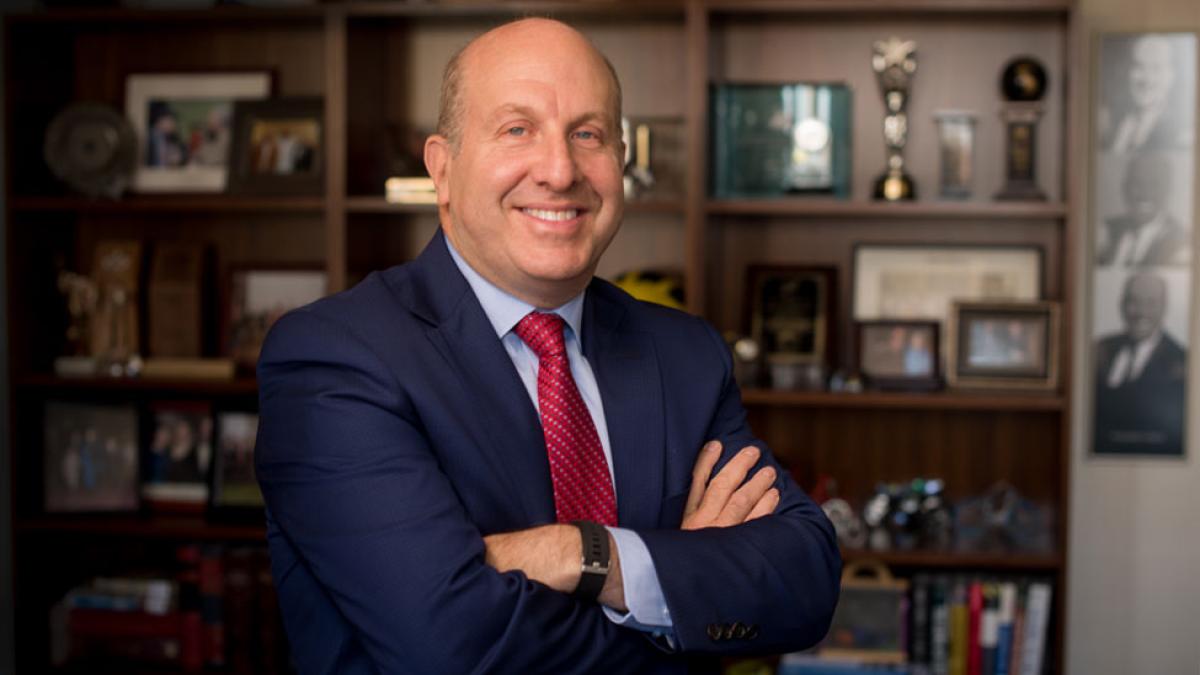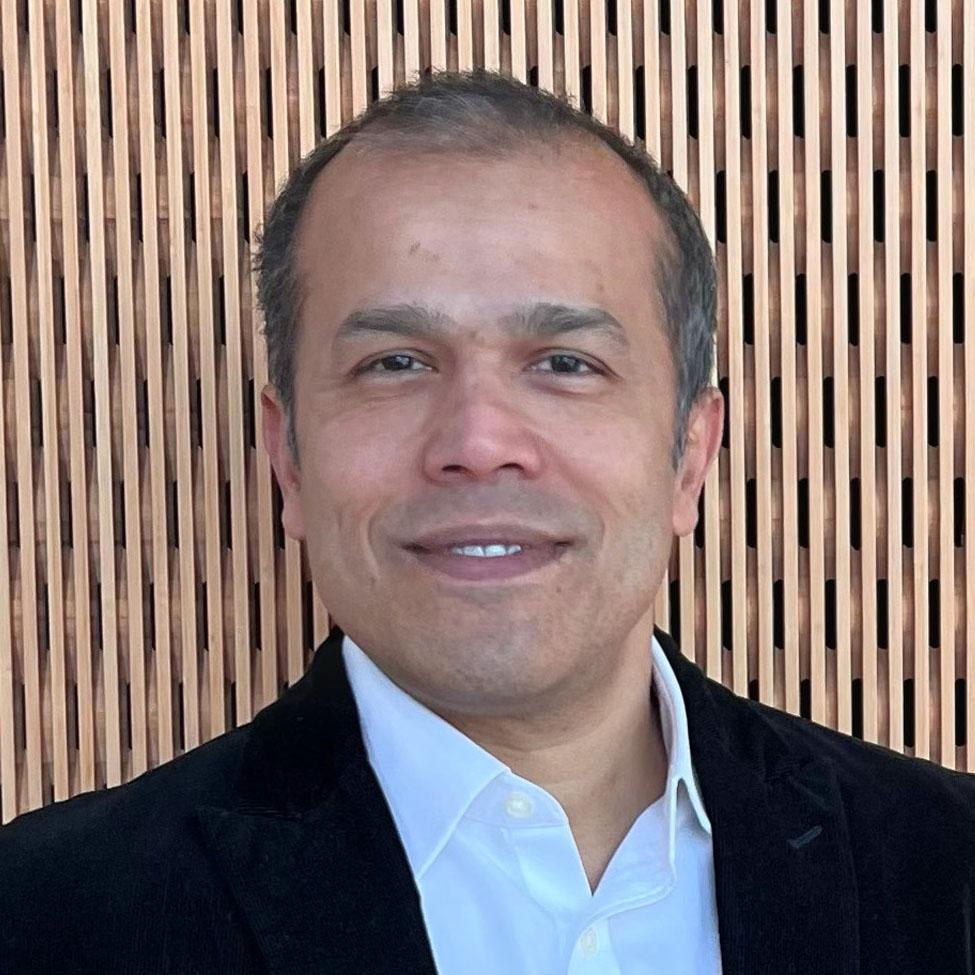
Susan Cacace Sworn In As Westchester County District Attorney
Alumna Susan Cacace ’89 was sworn in as Westchester County’s District Attorney at a formal inauguration ceremony held at the Elisabeth Haub School of Law yesterday. Following remarks from Pace University President Marvin Krislov, Haub Law Dean Horace Anderson, and several state and county leaders, New York Attorney General Leticia James administered the oath to DA Cacace.
DA Cacace is the first Haub Law alum to be elected Westchester County District Attorney and the third to be elected to a DA position in New York State in the school’s nearly 50 year history. She has led a distinguished life-long career in public service beginning as an ADA and then as the longest tenured County Court Judge of Westchester County.
Doing Good “and” Doing Well: The Emerging Social Enterprise Sector in the United States
Dyson Professor Stephen Rolandi writes a piece in the PA Times examining the emerging social enterprise sector in the United States.
Trump Withdraws Proposed PFAS Limitations
Pace University's Haub Environmental Law Professor Katrina Fischer Kuh spoke with News 12 about Trump’s plans to withdraw proposed PFAS limitations, also known as “forever chemicals” found in water, food packaging and other products. Professor Kuh cautions, “don’t panic,” saying it’s possible there could be a reconsideration.
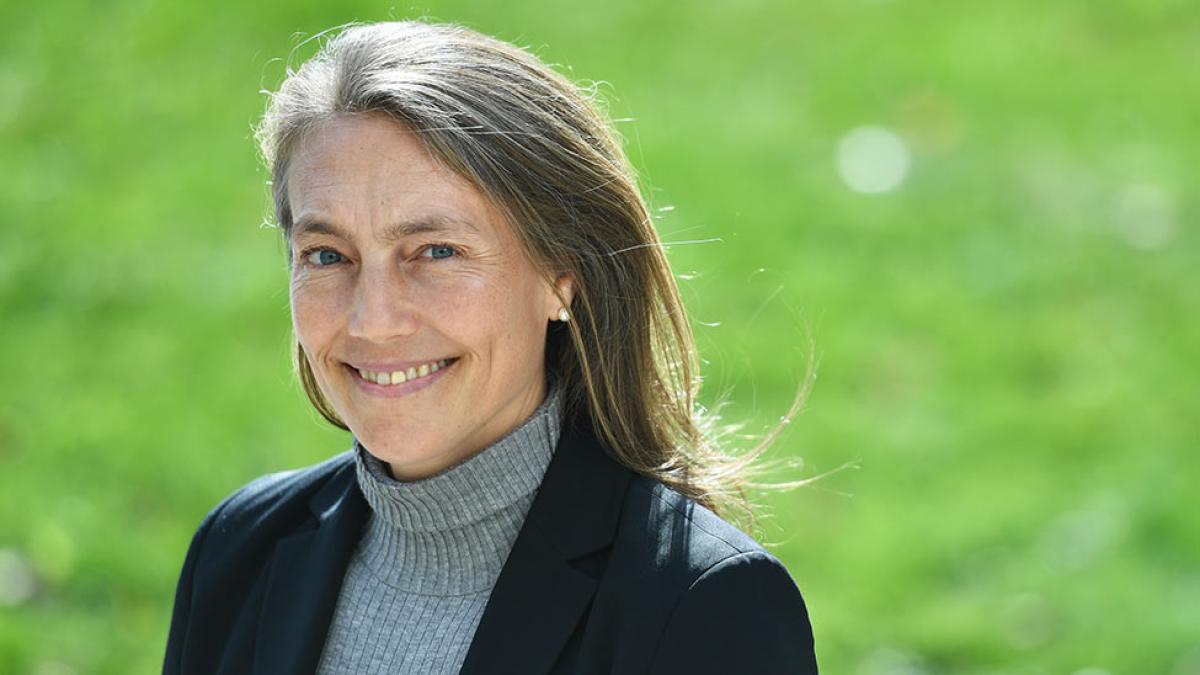
Cultivating Tomorrow’s Leaders in Sustainable Business Law: Haub Law Selects Six Students for Prestigious Scholar Program
The Elisabeth Haub School of Law at Pace University is proud to announce the selection of its third annual class of Sustainable Business Law Hub Student Scholars (Hub Scholars). The Hub Scholars Program was launched in 2023 as an integral part of the Sustainable Business Law Hub in fostering the next generation of legal leaders in sustainable business and ESG (environmental, social, and governance). An incredible benefit of being one of the selected Hub Scholars is the opportunity to participate in a coveted ESG internship or externship at prestigious law firms, financial institutions and businesses.
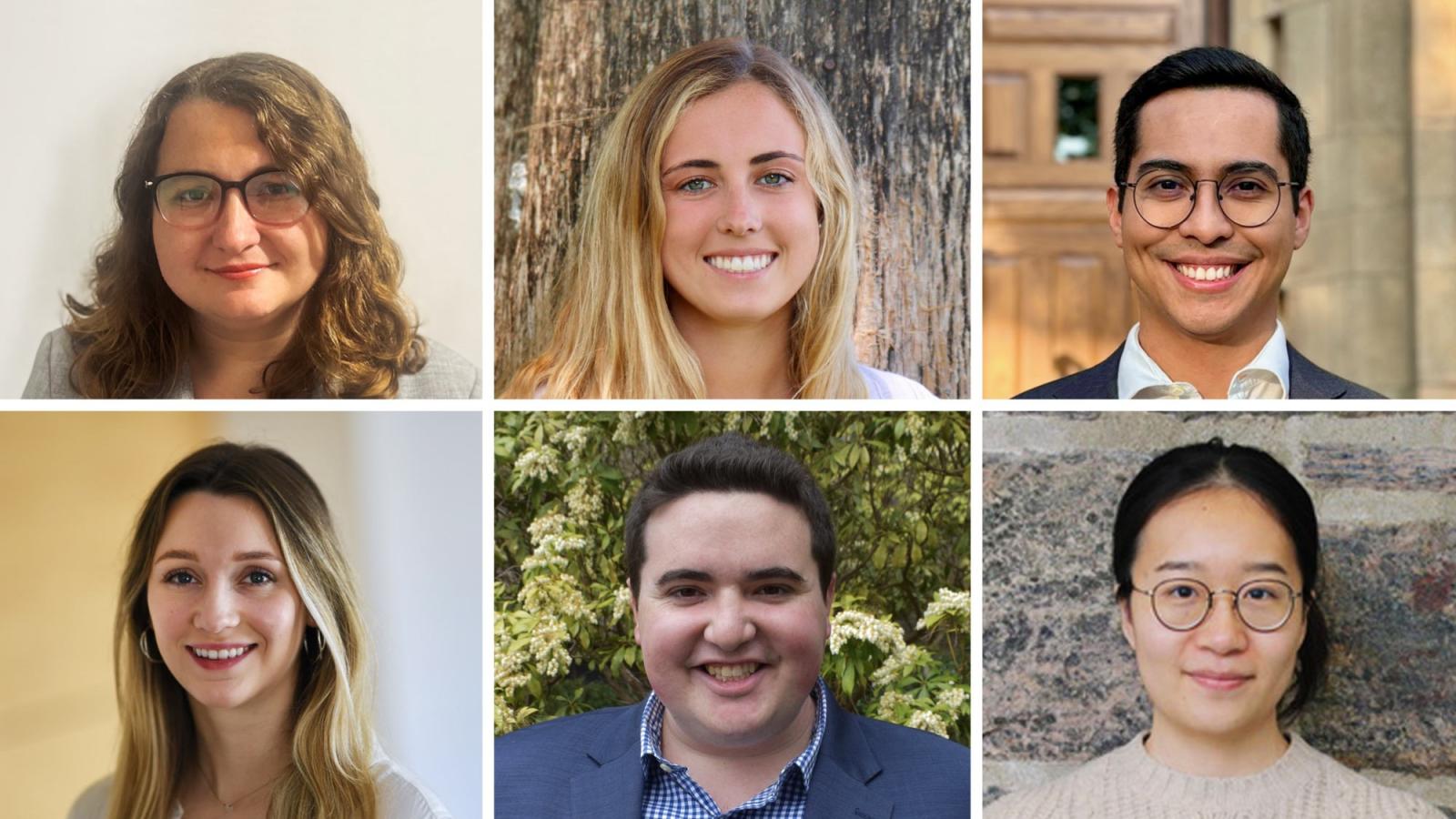
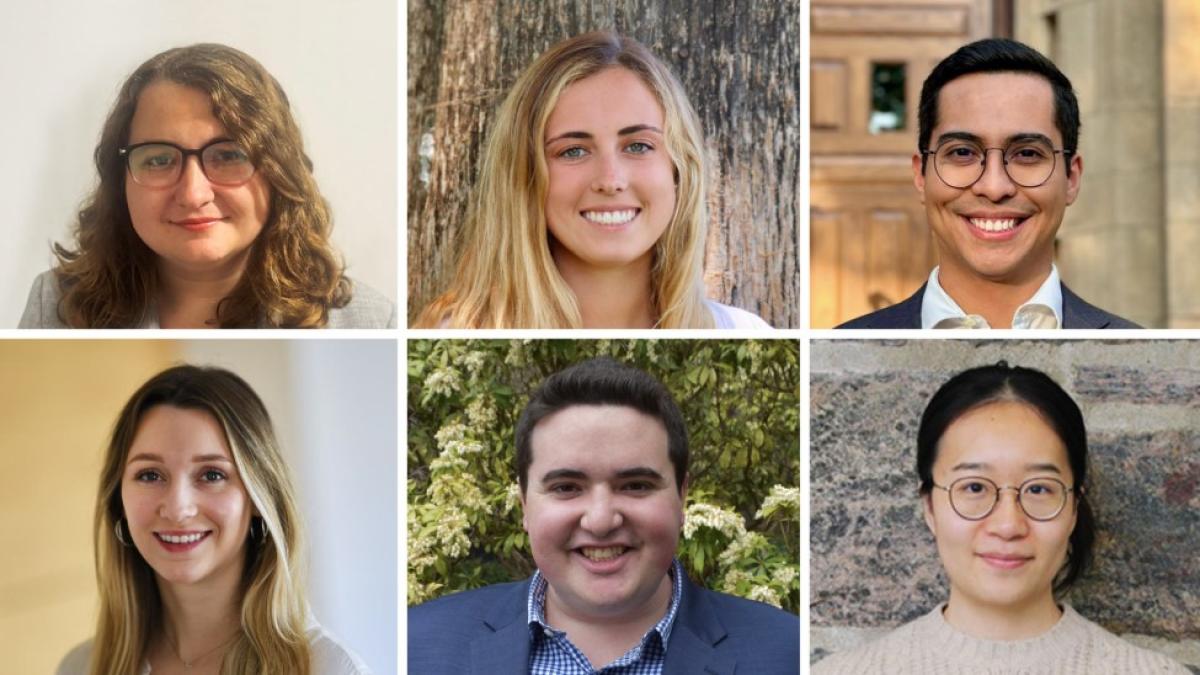
The Elisabeth Haub School of Law at Pace University is proud to announce the selection of its third annual class of Sustainable Business Law Hub Student Scholars (Hub Scholars). The Hub Scholars Program was launched in 2023 as an integral part of the Sustainable Business Law Hub in fostering the next generation of legal leaders in sustainable business and ESG (environmental, social, and governance). An incredible benefit of being one of the selected Hub Scholars is the opportunity to participate in a coveted ESG internship or externship at prestigious law firms, financial institutions and businesses.
“The Pace | Haub Environmental Law Hub Scholars Program has been a tremendous initiative for our Sustainable Business Law Hub,” said Jason Czarnezki, Kerlin Distinguished Professor of Environmental Law and Associate Dean of Environmental Law Programs and Strategic Initiatives, as well as inaugural Faculty Director of the Hub. “Our Scholars gain ESG experience in a variety of settings, as interns at law firms and working with in-house legal teams. These experiences have allowed our top students interested in ESG and sustainable business to pursue their interests in a meaningful way.”
The Sustainable Business Law Hub Scholars Program offers a unique blend of curriculum, scholarship, and mentorship for students pursuing careers in sustainable business law and ESG law. This highly selective program is tailored for students with exceptional entrance credentials and a clear, passionate vision for careers at the intersection of sustainability, business law, and environmental law.
As Hub Scholars, students gain hands-on experience in promoting sustainable business practices through internships or externships. These placements may involve working with ESG practice groups at law firms, collaborating under the guidance of in-house counsel at corporate entities, or supporting NGOs and government bodies in the ESG field. Additionally, Hub Scholars benefit from targeted training workshops and preparatory programs, working closely with faculty supervisors and seasoned mentors in the field. This supportive structure empowers students to refine their interests, build their professional networks, and access potential career opportunities.
“During my time as a Sustainable Business Law Hub Scholar, I have had the opportunity to connect with students, professors, and professionals within the sustainable business space broadly. These connections have allowed me to learn about a diverse range of topics within the “ESG" space,” Hub Scholar 2024–2025, Morgan Martin shared. “Furthermore, having the opportunity to intern with Paul Weiss in their ESG and Sustainability Practice has allowed me to see first-hand what an "ESG lawyer” entails. I look forward to continuing to learn from my fellow Hub Scholars, Professors, and Board Members as the Sustainable Business field evolves.”
Over the course of their studies, students receive curricular guidance that will allow them to receive the Advanced Environmental Law Certificate while pursuing courses relevant to sustainable business law, including the Business Law Path to Practice and the option to pursue an MBA with the Lubin School of Business as part of the joint JD/MBA program. Haub Law also offers courses on sustainable business law which include topics such as the definition of ESG, corporate responsibility and the triple bottom line; the role of the corporate board in achieving sustainability; social impact investing and ESG ratings; and ESG and climate disclosures, voluntary ESG reporting and risk management. Importantly, Hub Scholars will also have access to a wide network of Haub Law alumni, Lubin alumni, the Hub’s Advisory Board, and subsequent Hub Scholar alumni, who serve as mentors to new Hub Scholars.
Haub Law’s Sustainable Business Law Hub serves as an incubator space, student-training program, research endeavor, and think tank devoted to addressing global sustainability challenges through policy and research projects, relationships with the business community, and capacity building in private environmental governance. The Hub incorporates the three pillars of sustainability—economic, social and environmental welfare—into global business practices by engaging in research and policy development, improving public law and governance, and working with existing industry, the small business community, startups, and the community at-large to develop and employ innovative private environmental models and sustainability practices, such as those that promote a circular economy. Working hand-in-hand with faculty experts, students participating in the Hub receive practical training and experience in using the law to foster sustainable business practices.
Biographies of New Class of Hub Student Scholars
Karina Krul is a JD candidate pursuing the Advanced Certificate in Environmental Law at the Elisabeth Haub School of Law at Pace University. This Fall, she began pursuing her Master of Environmental Management at the Yale School of the Environment. Karina graduated in 2019 with a BS in Marine Biology from the University of New Haven. She completed her Honors Thesis on how environmental awareness affects attitudes toward sustainable development, which she presented at the 2019 Society of Applied Anthropology Annual Meeting. In the Spring of 2024, Karina was a junior associate for Pace International Law Review and an intern with the Permanent Mission of Costa Rica to the United Nations. Additionally, Karina began her work as a Law Clerk at Richman Law & Policy in the Spring of 2024 focusing on impact litigation firm that uses consumer protection law to hold corporations accountable for their environmental representations. Karina is passionate about a future that operates through inclusive, environmentally sound governance by ensuring every stakeholder gets a seat at the table. This summer, she will be a law clerk with Earthjustice.
Morgan E. Martin is in her final year of her JD degree at the Elisabeth Haub School of Law at Pace University. She graduated from Rollins College in 2021 with a degree in Public Policy and Political Economy. Before coming to law school, she moved to Bali Indonesia to volunteer for an NGO where she taught English and sustainability lessons in a local village and worked on a coral reef restoration project. Last year, Morgan was Vice-Chair for the Jeffery G. Miller National Environmental Moot Court Competition and was a research intern at the Pace Energy and Climate Center. This past summer she was a summer associate at Fenwick & West in their corporate practice and will return to Fenwick & West as an entry-level associate after graduating. She is currently an Acquisitions Editor for Pace Environmental Law Review as well as an intern for Paul Weiss’s ESG & Sustainability Advisory Practice. She plans to graduate with an Advanced Certificate in Environmental Law.
Samuel de Carvalho is a Brazilian attorney currently pursuing an LLM in Environmental Law, specializing in Energy and Climate Change Law, at the Elisabeth Haub School of Law at Pace University. After completing his Bachelor of Laws at the Federal University of Ceará in 2022 and working as an attorney in the private sector, Samuel decided to explore the intersection between this sector and environmental law. Samuel serves as a research assistant for the Global Center for Environmental Legal Studies, where he helps organize and draft IUCN motions for the 2025 IUCN World Conservation Congress in Abu Dhabi. In addition, Samuel is the Written Content Vice Chair for both the ABA SEER Climate Change and ESG & Sustainability Committees, where he manages article editing and content creation. He also holds the role of LLM Liaison for Haub Law’s Environmental Law Society.
Samuel has a deep interest in global climate discussions as well, volunteering at COP28 with Legal Response International and being selected by YOUTHCOP to participate in COP 29 in Baku, Azerbaijan. His recent publications include articles on SEC rules impacting registrants’ value chains and clean energy incentives for the implementation of ground source heat pumps under energy savings performance contracts. In 2024, he began interning with the Initiative for Responsible Mining Assurance (IRMA), focusing on improving social and environmental performance in the mining sector.
Lauren Lynam is a JD candidate at the Elisabeth Haub School of Law at Pace University and is also pursuing her Master of Environmental Management at the Yale School of the Environment. She graduated in 2021 from Chapman University with a BA in Economics and BS in Environmental Science and Policy. While in law school, Lauren has joined many organizations and is currently a Co-Editor-in-Chief of Urban Lawyer Law Journal; Productions Editor on the Pace Environmental Law Review; Co-Vice Chair for the ABA Section of Energy, Environment and Resources’ ESG Committee; and Student Ambassador at Haub Law. This past summer, she worked as a Summer Associate at Cuddy & Feder and is continuing as a Law Clerk through the school year. She aims to continue her efforts in the ESG space, merging the practices of economics, science, and policy through law. She is also pursuing the Advanced Certificate in Environmental Law.
Harrison Bench is a JD Candidate at the Elisabeth Haub School of Law at Pace University, where he is pursuing the Advanced Certificate in Environmental Law. Next fall, he will begin his Master of Environmental Management at the Yale School of the Environment. In 2023, Harrison graduated summa cum laude from the University of South Carolina Honors College with a degree in Environmental Policy. He is currently Programs Vice Chair of the ABA SEER Environmental Law Society Network, Bailiffs Vice Chair for the National Environmental Law Moot Court Competition, a Land Use Law Scholar/Research Lead, and a Junior Associate for the Pace Environmental Law Review. This past summer, Harrison worked as a legal intern for EPA Region 2 in their water and general law branch. He presently serves as Deputy Executive Director of Students for Climate Action, a regional environmental non-profit. As a Hub Scholar, Harrison is eager to learn more about how the corporate sector can help local governments, small businesses, and other under-resourced stakeholders pursue sustainability initiatives and comply with relevant environmental laws.
Haoting Guo is a JD candidate at the Elisabeth Haub School of Law at Pace University, pursuing an Advanced Certificate in Environmental Law. She graduated from the University of California, Davis, with a BS in Environmental Policy Analysis and Planning in 2021. Before attending law school, Haoting served as an operations intern at an NGO focused on biodiversity advocacy. During her first year at Haub Law, she developed a strong passion for promoting sustainable business practices within corporate settings, which drove her to become a Hub Scholar. Haoting interned with the Energy and Environmental Law Department at Consolidated Edison this past summer. She currently serves as a student editor for the Urban Lawyer.
English, Writing, and Cultural Studies Professor Named Runner-Up in The Saturday Evening Post Fiction Contest
Assistant Professor of English, Writing, and Cultural Studies Dana Jaye Cadman, MFA, had her short story, The Winds, published in the historical The Saturday Evening Post. Also a runner-up in their 2025 Great American Fiction contest, it is a story of a teenager spending a summer—replete with hormones and love spells—with her witch aunt.

Westchester Nonprofit Brings Domestic Violence Awareness to Teenagers, Young Adults
CBSNew York interviews Executive Director of the Pace Women's Justice Center, Cindy Kanusher, about the center and their annual LoveIsn't campaign. They also cover PWJC's training at Ardsley High School, educating the senior class on healthy relationships, safety, and their legal rights before graduation.

Bridging Strategy, Social Responsibility, and Innovation
With over two decades at the Lubin School of Business, Professor Noushi Rahman brings a dynamic approach to teaching and research. From corporate strategy and AI in business to social responsibility and misconduct, his work equips students with critical thinking skills and practical expertise to thrive in today’s complex business world.
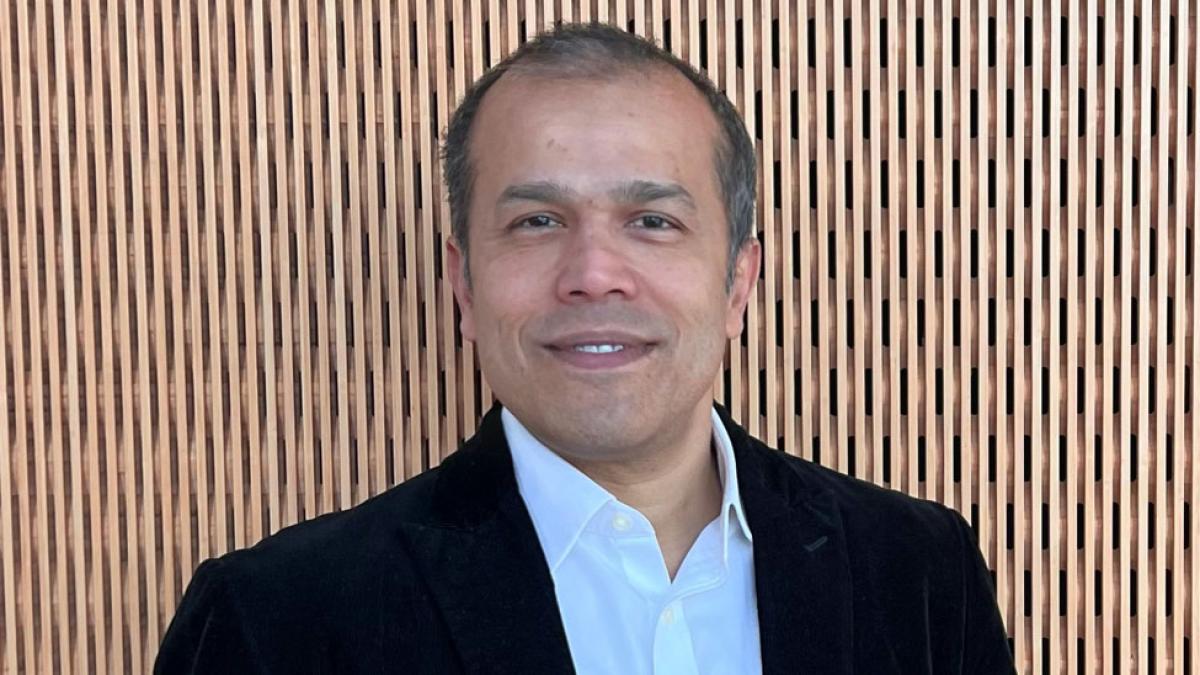
Faculty Spotlight: Noushi Rahman, PhD

We sat down with Professor Noushi Rahman of the Department of Management and Management Science at Pace University's Lubin School of Business to discuss his 22-year career at the University. With research interests spanning corporate strategy, corporate social responsibility, corporate misconduct, and artificial intelligence in business, he combines academic rigor with real-world application in his teaching. His commitment to critical thinking and experiential learning prepares students to succeed in complex business environments.
Why Management?
Management sits at the intersection of economics, psychology, and sociology—three disciplines I find fascinating. As a management scholar, I have the opportunity to explore ideas from these disciplines and conceptualize their combined applications in the business world.
Why Lubin/Pace?
During my six years as a doctoral student in the Business Program at the City University of New York, I steadily became a New Yorker. My administrative home was the Graduate Center in Midtown Manhattan, and my academic home was Baruch College in Lower Manhattan. When I entered the job market, I sought positions within a commutable distance of New York City. I had known about Pace University and the Lubin School of Business for years, so I was thrilled to accept Pace's job offer.
What are your research interests/areas?
My research spans four key areas: (i) cooperative and competitive strategy, (ii) corporate social and environmental responsibility, (iii) corporate misconduct and reputation, and (iv) artificial intelligence in business. I remain actively engaged in all these areas.
Why is it important to advance research in these areas?
As a scholar, I am trained to do research. Therefore, I naturally gravitate toward new research projects. While research can be frustrating, it is also rewarding and fun.
I find company strategy to be a fascinating topic because of its complexity. My interest in corporate social responsibility (CSR) and environmental responsibility stemmed from an early curiosity about social entrepreneurship—I have conducted modest work in that area as well. It all started when my sister wrote a term paper on the topic. Around the same time, the Wilson Center received funding to establish a Social Entrepreneurship Center at Pace, and I connected those dots. I am grateful for these seemingly random events, as my research in the CSR space has had a significant impact, as evidenced by scholarly citation data.
My focus on corporate misconduct and reputation began when one of my doctoral students chose it as the subject of his dissertation. I found the topic compelling and eventually became a subject matter expert in the field. More recently, while supervising another doctoral student, I was introduced to academic literature on artificial intelligence's role in business. This area captivated me as well, and over the past few years, I have actively pursued several projects in this domain.
I emphasize critical thinking and empirical applications in my teaching. While case discussions center on facts, I encourage students to delve deeper and uncover what those facts reveal at a conceptual level.
What do students learn in your classroom?
I emphasize critical thinking and empirical applications in my teaching. While case discussions center on facts, I encourage students to delve deeper and uncover what those facts reveal at a conceptual level. This approach sharpens their business insights, enabling them to read and interpret business stories more effectively than they could before taking my course.
In my strategy elective courses, I also assign a data-driven project. Students learn to computationally visualize data and interpret their visuals like consultants, gaining practical, transferable skills that prepare them for real-world business challenges.
Discuss your professional path and its impact on how you teach and what you teach.
I am a career academic, with professional experience that includes brief engagements as a consultant and subject matter expert for both for-profit companies and nonprofit organizations. These diverse experiences have informed my teaching with a large collection of practical insights and real-world applications that complement my scholarly research.
What are some challenges you had to overcome to get to where you are today?
As an international student pursuing undergraduate and graduate studies in the U.S., I faced many challenges common to international students, including funding limitations, restricted employment opportunities, and the absence of a supportive network. Additionally, during my time as a student, free calling platforms were unavailable, making communication with my parents—who lived on the other side of the world—both limited and expensive.
These challenges, however, made me more resilient and determined. I believe that every challenge presents opportunities, just as every opportunity comes with its own set of challenges.
Of which triumph are you most proud?
I coauthored an article with Professor William Starbuck, who was my doctoral advisor's advisor. I am particularly proud of earning Professor Starbuck's respect and collaborating with him on this project.
What is the single most important lesson you'd like to impart to your students?
There is no alternative to hard work. While technology will make work easier, it will avail us all more time to do more work. Hard work needs to remain constant to do well in life. There is no shortcut.
What does #LubinLife mean to you?
To me, #LubinLife blends academic rigor and real-world application, and fosters a culture where critical thinking meets applied-setting execution. As a strategy professor at Lubin, I put this in practice by guiding students through case discussion-based classes and data-driven projects that prepare them to navigate and excel in business environments.
Courses Professor Rahman Teaches:
- Strategic Decisions (MBA 820) [capstone course of the MBA program]
- Competitive Business Strategy (MGT 637)
- Corporate Diversification Strategy (MGT 638)
- Business Strategy (MGT 490) [capstone course of the BBA program]
Pace's Center for Student Enterprise Recognized by the National SRBA
Owen Raisch, president of the national Student-Run Businesses Association (SRBA), commended Pace's Center for Student Enterprise (CSE), a consortium of five student-run businesses on the Pleasantville Campus that collectively employ 80 Lubin students. Raisch visited the campus to see how these budding entrepreneurs have made such a big impact on the Pace community.


"How'd they get so impactful?" asks Owen Raisch, president of the national Student-Run Businesses Association (SRBA). He was referring to Pace's Center for Student Enterprise (CSE), a consortium of five student-run businesses on the Pleasantville Campus that collectively employ 80 Lubin students. Founded in 2010 by Professor Kathy Winsted, PhD, and her students, the CSE is a member of the SRBA, which supports and represents 5,000+ student entrepreneurial founders, leaders, and organizations. Raisch visited the campus to see how these budding entrepreneurs have made such a big impact on the Pace community.
All of the student managers tell me that when they go for interviews for internships or full-time jobs that all the interviewer wants to ask them about is their position at the student-run business.
"All of the student managers tell me that when they go for interviews for internships or full-time jobs that all the interviewer wants to ask them about is their position at the student-run business," says Professor Winsted. "When the student who was one of the original founders of Pace Mart went for an interview at J.P. Morgan, she was able to answer the situational questions with real experiences she had at the business she was running. She was hired on the spot."
Raisch complimented the prevalence of food services among the CSE businesses. With Pace Perk Cafe providing coffee and treats, Pace Mart convenience store essentials, Pace Fit healthy smoothies and snacks, and Pace Delivers meals from neighborhood restaurants, four of the five businesses are in the food service sector (the fifth, Pace Connect, is a research and call center that conducts the annual Pace Poll, among other endeavors). These four businesses fill the gaps when the cafeteria is closed on weekends and evenings, with Pace Delivers serving the residence halls at 10:00 a.m. and midnight – perfect for late-night study breaks.
The CSE does not limit itself to the five existing businesses. Students interested in starting or managing an entrepreneurial endeavor can meet with like-minded peers and professors and work to have their ideas come to fruition. From the initial business, Pace Perk, students worked to develop and launch the other four, recognizing the market demand for items such as the healthy smoothies provided by Pace Fit or the late-night restaurant meals from Pace Delivers.
I loved learning how the student-run business program at Pace in Pleasantville became a, if not THE, main food service provider on campus.
"I loved learning how the student-run business program at Pace in Pleasantville became a, if not THE, main food service provider on campus," Raisch says. Noting the unusually high participation rate (roughly 13% of Lubin's 615 Pleasantville students work at CSE businesses), he said, "The program reflects some of the best qualities of our members."
Elisabeth Haub School of Law at Pace University Appoints Dynamic Leadership Team to Advance Its Top-Ranked Environmental Law Program
The Elisabeth Haub School of Law at Pace University is proud to announce the appointment of an accomplished leadership team to continue to guide its top ranked Environmental Law Program into the future. Haub Distinguished Professor of Environmental Law, Katrina Fischer Kuh, will serve as Faculty Director of the Environmental Law Program. Achinthi C. Vithanage, Professor of Law for Designated Service in Environmental Law and Associate Director of Environmental Law Programs, will assume the role of Executive Director of the Environmental Law Program. Additionally, Josh Galperin, Associate Professor of Law, will take on the role of Faculty Director of the Sustainable Business Law Hub.

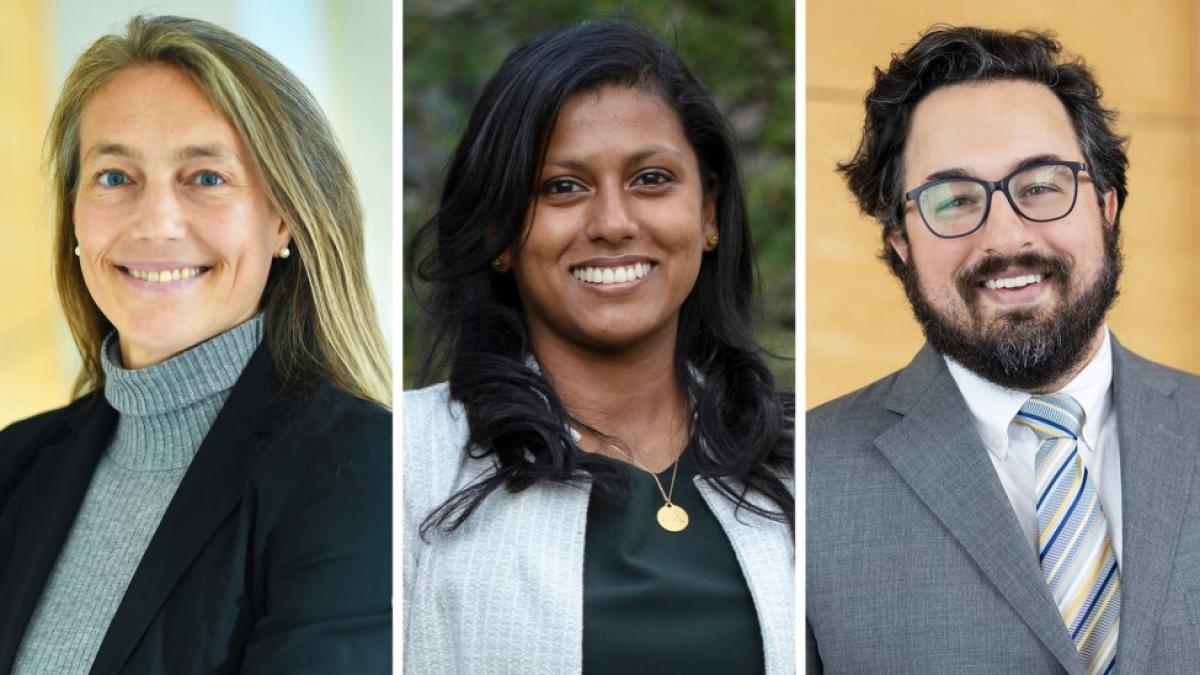
The Elisabeth Haub School of Law at Pace University is proud to announce the appointment of an accomplished leadership team to continue to guide its top ranked Environmental Law Program into the future. Haub Distinguished Professor of Environmental Law, Katrina Fischer Kuh, will serve as Faculty Director of the Environmental Law Program. Achinthi C. Vithanage, Professor of Law for Designated Service in Environmental Law and Associate Director of Environmental Law Programs, will assume the role of Executive Director of the Environmental Law Program. Additionally, Josh Galperin, Associate Professor of Law, will take on the role of Faculty Director of the Sustainable Business Law Hub.
This leadership transition, to take effect in June 2025, follows the impressive tenure of Jason J. Czarnezki, who has overseen the program since 2013. Under his guidance, the Environmental Law Program rose to new heights, achieving a #1 ranking in Environmental Law by U.S. News & World Report for the fifth time and the fourth consecutive year in 2024. Professor Czarnezki will depart Haub Law to become the next Dean of Chicago-Kent College of Law at Illinois Institute of Technology.
“Since its establishment, our Environmental Law Program has been at the forefront of shaping the future of environmental law and sustainability,” Horace E. Anderson, Jr., Dean of Haub Law. “We are fortunate to have a dedicated team of environmental leaders, scholars, and practitioners who will continue to elevate this legacy. Katy, Achinthi, and Josh, have been instrumental in our program’s success throughout the years and have established themselves as thought leaders in the field. We are thrilled to have this strong leadership team in place to build on our premier environmental law program and allow it to continue to thrive and innovate into the future.”
Established in 1976, the Pace | Haub Law Environmental Law Program has a global footprint, addresses today’s most pressing challenges, and is recognized both nationally and internationally as a leading legacy in environmental law. The program’s continued evolution includes new partnerships, innovative programs, and leading faculty scholarship that is shaping the future of environmental law and policy on a national and global scale.
The Pace | Haub Law Environmental Law Program is widely known for its innovative programs, expert faculty, and renowned scholarship, and for attracting distinguished guest speakers, visiting scholars, and an exceptional student body. In 2021, the Law School launched the Sustainable Business Law Hub, creating new opportunities for training, policy, and research at the intersection of environmental law and business law. The Sustainable Business Law Hub’s advisory board features prominent experts in the field, and the Hub also provides paid internship opportunities for students through partnerships with leading firms and companies, and through collaborations with the region’s business community. In partnership with the Westchester County Association, the Hub hosts the ‘Profit & Purpose’ Sustainable Business Conference each year, as well as the Sustainable Business and Private Governance Scholarship Workshop.
In recent years, the environmental law program also founded the Environmental Law and Policy Hack Competition for law schools throughout the country and the Future Environmental Law Professors Workshop which trains new and aspiring professors pursuing a career in environmental law. Other well-known programs and opportunities at the school include the annual hosting of the preeminent environmental law moot court competition, the Jeffrey G. Miller National Environmental Law Moot Court Competition. The Law School also hosts lectures and panels throughout the year featuring environmental scholars, advocates, and policymakers, and it recognizes leading international environmentalists through the annual presentation of the Elisabeth Haub Award for Environmental Law and Diplomacy, considered one of the world’s most distinguished awards in the field of environmental law.
Haub Law offers more than 40 environmental law courses, as well as dozens of internship and externship opportunities. In recent years, the Law School has expanded its environmental law faculty, attracting prominent scholars in the field as full-time and visiting assistant professors. Students have the opportunity to research emerging areas of environmental law alongside experts in the field through the Environmental Law Program’s various centers and institutes, including the Pace Energy & Climate Center and Land Use Law Center, and can directly represent clients through the Environmental Litigation Clinic and the Food and Farm Business Law Clinic. These opportunities provide Haub Law students with the tools they need to be national and international leaders in environmental law.
“It has been an honor to lead Haub Law’s environmental law program for the last twelve plus years,” said Professor Czarnezki. “Haub Law’s strength lies in its exceptional faculty, scholarship, and forward-thinking programs. Working alongside Katy, Achinthi, Josh, and all my environmental colleagues towards a healthier environmental future has been a privilege. Under this trio of impressive internal leadership, Haub Law’s environmental legacy has a bright future ahead.”
Katrina Fischer Kuh will serve as the Faculty Director of the Environmental Law Program. She joined the Elisabeth Haub School of Law faculty as the Haub Distinguished Professor of Environmental Law in 2017. She was previously on the faculty at the Maurice A. Deane School of Law at Hofstra University, where she was a Professor of Law and served as an Associate Dean of Intellectual Life. Professor Kuh’s scholarship focuses on climate change and sustainability, and she has taught Environmental Law, International Environmental Law, Global Climate Change and U.S. Law, Administrative Law, and Torts. Most recently, she is the co-editor of the book Adapting to High-Level Warming: Law, Governance, and Equity. Before entering academia, Professor Kuh worked in the environmental and litigation practice groups in the New York office of Arnold & Porter LLP and served as an advisor on natural resource policy in the U.S. Senate. She also served as a law clerk to Judge Charles S. Haight of the U.S. District Court for the Southern District of New York and Judge Diana Gribbon Motz of the U.S. Court of Appeals for the Fourth Circuit.
Achinthi C. Vithanage will serve as the Executive Director of the Environmental Law Program. Prior to joining Haub Law as the Associate Director of Environmental Law Programs, Professor of Law for Designated Service in Environmental Law, she was a Visiting Associate Professor of Law and the first Environmental and Energy Law Fellow with an international law background at the George Washington University Law School (GW Law). Professor Vithanage was born in Sri Lanka, lived in the United Arab Emirates, practiced as an attorney in the state of New South Wales (NSW) in Australia. She also worked at the Energy & Water Ombudsman of NSW and practiced in the corporate, commercial, and property legal sectors in Sydney, Australia. Since her arrival in the United States, Professor Vithanage was recognized as one of the country’s leading environmental and energy lawyers in LawDragon’s inaugural list in 2021 and was subsequently listed in LawDragon’s 500 Leading Environmental Lawyers Guides for 2023 and 2024. Within the American Bar Association’s Section on Environment Energy & Resources (SEER) she serves on its Governing Council and is the founding Co-Chair of the Environmental Law Society Network. She serves on the Secretariat to the International Union for Conservation of Nature’s (IUCN) Academy of Environmental Law, is a member of the World Commission on Environmental Law, and an originating member of the International Association of Energy Law, a global network of early career energy law professors.
Josh Galperin will serve as the Faculty Director of the Sustainable Business Law Hub at Haub Law. Professor Joshua Galperin joined the Haub Law faculty in July 2021 as an Associate Professor. Before that, Professor Galperin was on the faculty at the University of Pittsburgh School of Law since 2018. Prior to the University of Pittsburgh, Professor Galperin was the Director of the Environmental Protection Clinic, Lecturer in Law, and a Research Scholar at Yale Law School. He has been a fellow at Yale University’s Pauli Murray College from 2017 to the present. Professor Galperin was also a lecturer and the Environmental Law and Policy Program Director at the Yale School of the Environment (YSE). In addition to directing and teaching the Environmental Protection Clinic, Professor Galperin directed the dual law-environment degree program between YSE and Pace, Vermont, and Yale law schools. He was a lead collaborator in the Land Use Collaborative between YSE and Pace. Professor Galperin was also the associate director for the Yale Center for Environmental Law & Policy, where he oversaw all operations of the Center including budgeting, fundraising, research, and teaching. Professor Galperin’s research and teaching cover environmental law, administrative law, food and agriculture law and policy, property, constitutional law, and tort law and he has published extensively on those topics. Before Yale, Professor Galperin worked for the Southern Alliance for Clean Energy (SACE), where he was a policy analyst and research attorney. Before SACE, Professor Galperin was a legislative counsel for the Vermont General Assembly, where he primarily staffed the House and Senate committees on agriculture.
“With this accomplished leadership team, the Pace | Haub Law Environmental Law Program is set to continue its legacy as a global leader in environmental legal education,” said Dean Horace Anderson. “Together, Professors Kuh, Vithanage, and Galperin bring decades of combined expertise and a commitment to advancing environmental law and policy through scholarship, innovation, and collaboration.”
Higher Education Is Essential To Driving Economic Growth In Westchester | Opinion
Pace President Marvin Krislov pens an op-ed with The Business Council of Westchester CEO Marsha Gordon in The Journal News discussing the vital role higher education plays in driving economic and social progress.
